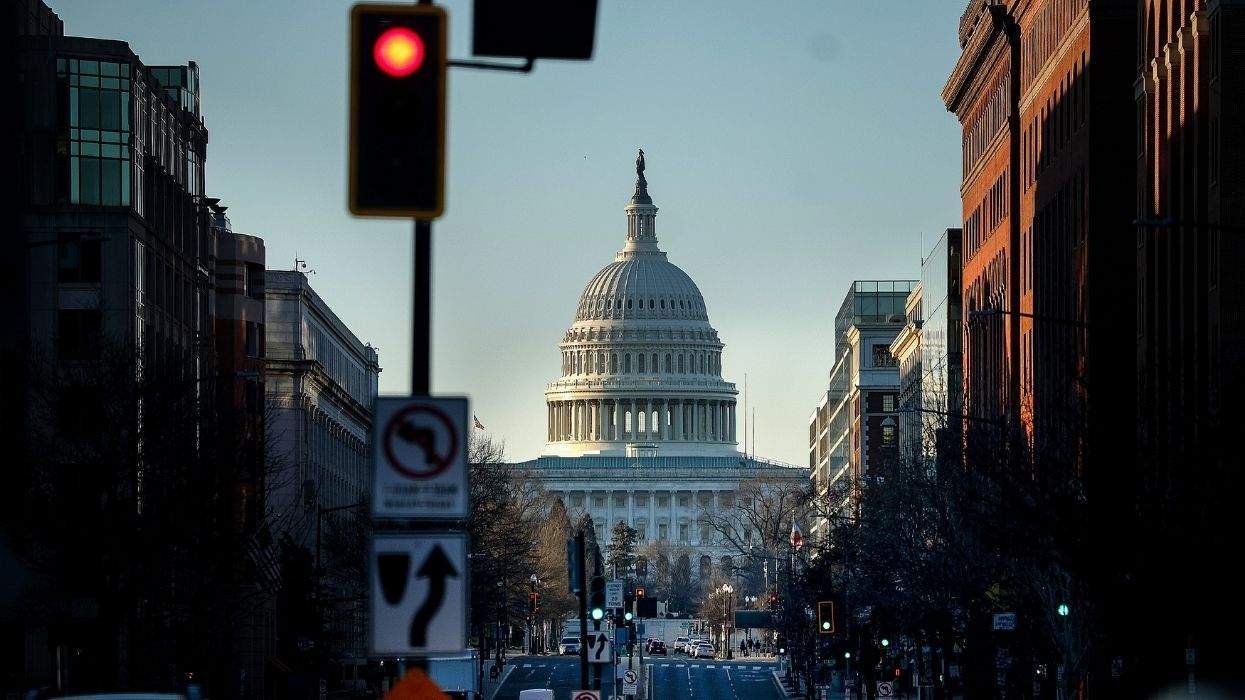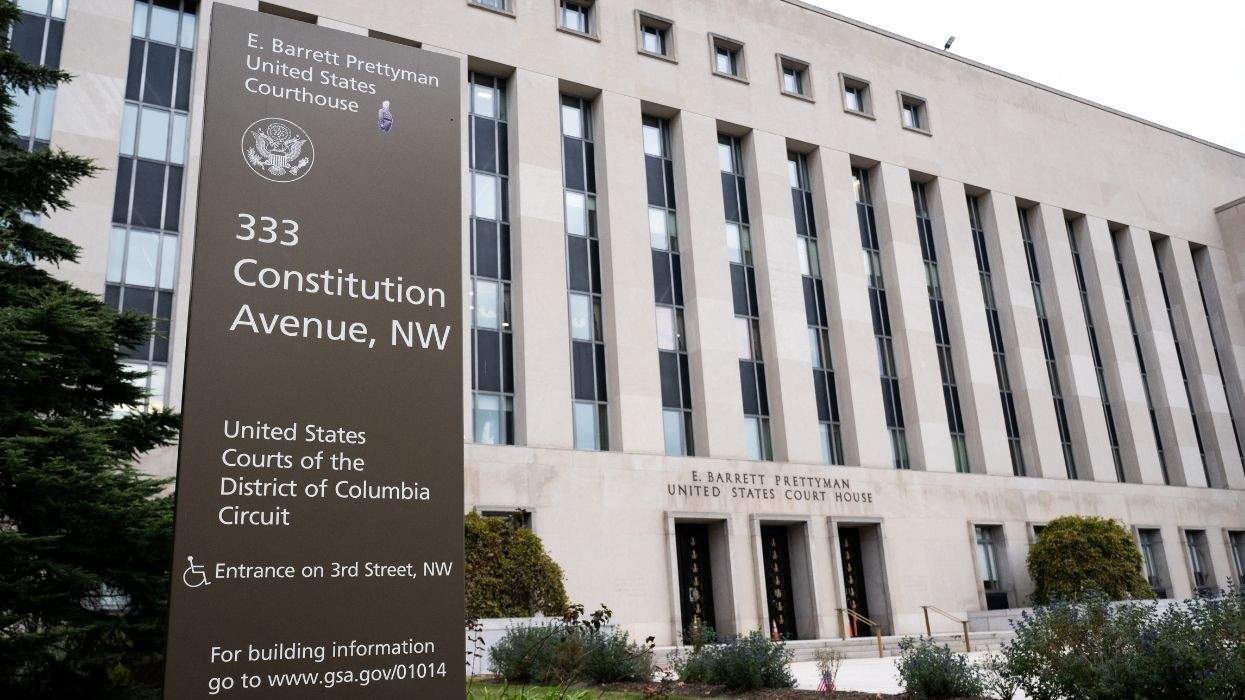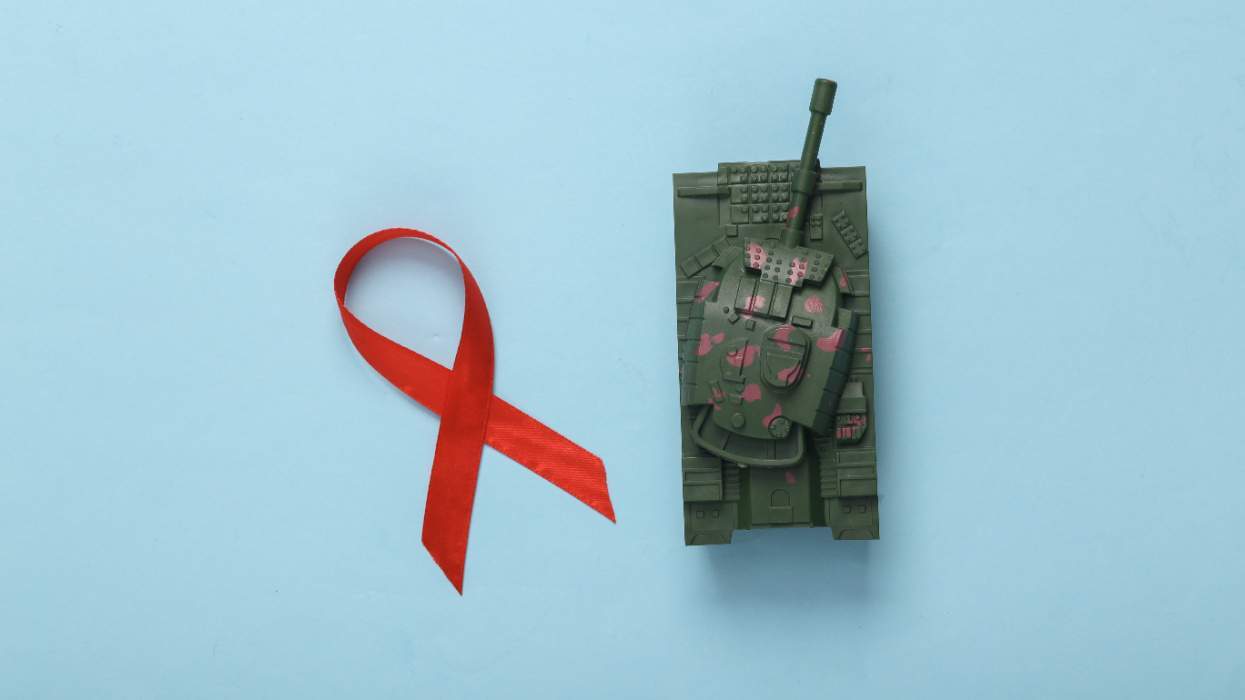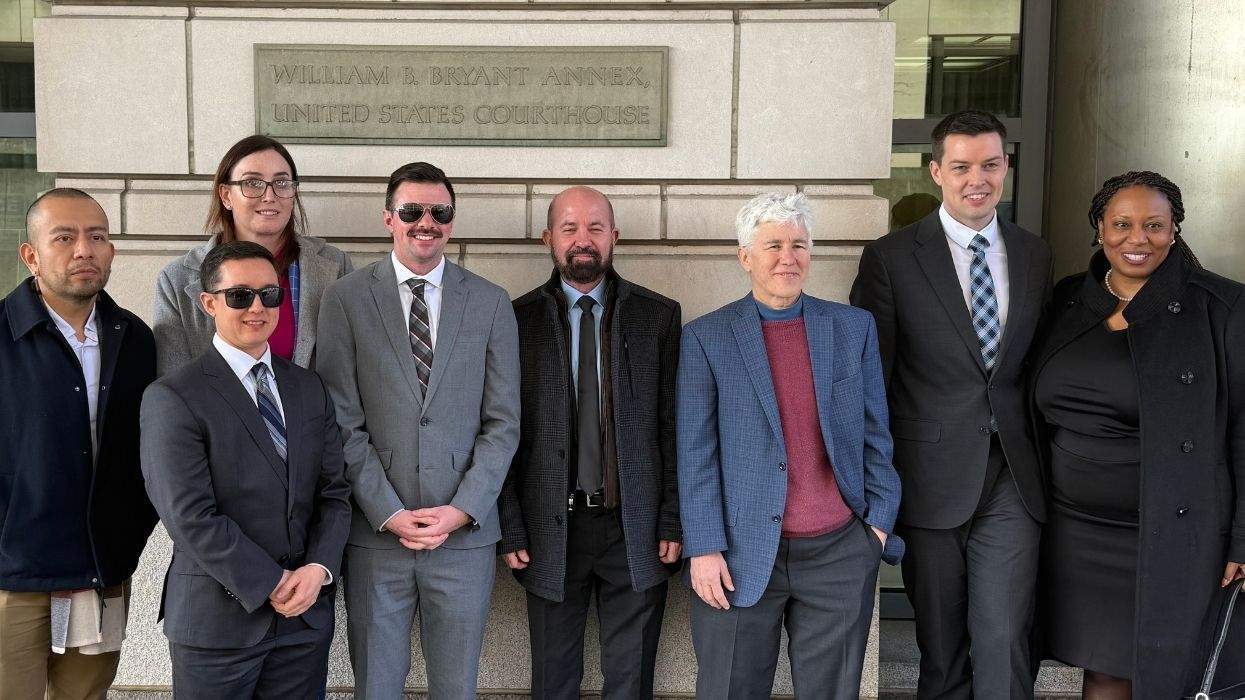At the Pentagon's annual Pride month celebration today, Secretary of Defense Ashton Carter announced that the Department of Defense has adopted a change in its nondiscrimination policy that, for the first time, gives gay, lesbian, and bisexual troops the kind of protection that can't be offered by body armor.
Sec. Carter announced that the Dept. of Defense has "completed the process for updating its military equal opportunity policy to include sexual orientation, ensuring that the department, like the rest of the federal government, treats sexual orientation-based discrimination the same way it treats discrimination based on race, religion, color, sex, age, and national origin," reports the American Military Partner Association, the nation's largest organization of lesbian, gay, bisexual, and transgender military families.
The revision was made to the Military Equal Opportunity Policy, or MEO -- which has never before included sexual orientation as a protected class -- ensuring that members of the military cannot be discriminated against for their sexual orientation. The revision was submitted to Sec. Carter for his final approval earlier this month, according to the Washington Blade.
"This long overdue and critical change to the military equality opportunity program will help ensure that LGB service members are treated fairly with the dignity and respect they deserve," said AMPA President Ashley Broadway-Mack in a Tuesday statement. "But it's incredibly important to note that we absolutely cannot leave our transgender service members behind. We again urge Secretary Carter to also order a full and comprehensive review to update the outdated regulations that prevent transgender service members from serving openly and honestly. It's just as important to our LGBT military families that these same nondiscrimination protections be extended to our transgender service members."
According to the Blade, the change follows an internal review of the MEO, which an anonymous Pentagon official said took approximately a year. Prior to this change, the MEO policy included race, color, religion, age, physical or mental disability, sex and national origin as protected classes. However, service members had no recourse for antigay discrimination, outside of filing a complaint with their chain of command.
LGBT advocates have long been calling for a change to the policy, asking that it include sexual orientation. Despite the 2011 repeal of the ban on out LGB service members known as 'don't ask, don't tell,' gay, lesbian, and bisexual members of the military were not protected by the military's nondiscrimination policy before today's update.
"We appreciate the leadership of Secretary Carter in advancing this unfinished business of 'Don't Ask, Don't Tell' repeal which is an important step to ensure LGB service members are treated equally," said Human Rights Campaign Government Affairs Director David Stacy in a statement. "To reach our goal of full LGBT equality in the military, it's also crucially important that the ban on transgender service members be lifted by updating outdated regulations that prevent them from serving openly and honestly. Secretary Carter should implement these vital changes and also extend these same non-discrimination protections to the estimated 15,500 transgender troops currently serving in silence."
Indeed, the MEO revision does not impact the Department of Defense's longstanding ban on military service by openly transgender Americans, who are barred from service by a medical regulation that declares any gender-affirming clinical, medical, or surgical treatment to be evidence of a "psychosexual condition" that can see a member discharged from his or her duties.
Just yesterday, the American Medical Association approved a resolution declaring there is "no medically valid reason to exclude transgender individuals from service in the U.S. military," the latest in a mounting collection of evidence that has consistenly confirmed there is "no compelling medical reason" to keep openly transgender Americans from serving in the Armed Forces.
And last week, the U.S. Air Force broke ranks with the other military branches by announcing that transgender identity or a diagnosis of gender dysphoria alone would no longer be a reason for an Airman or Airwoman to be "separated" from duty -- in other words, kicked out.
According to the announcement by an Air Force spokesperson last week, "Neither gender dysphoria nor self-identification as transgender is an automatic circumstance that generates involuntary separation. ... Identification as transgender, absent a record of poor duty performance, misconduct, or a medically disqualifying condition, is not a basis for involuntary separation."
Additionally, the Air Force elevated discharge decisions from an airman's chain of command to the Director of the Air Force Review Boards Agency, in a move similar to one the Army made earlier this year.
The USAF's reference to "medically disqualifying condition" can still apply to "gender dysphoria," a form of mental and emotional distress over a mismatch in body and gender identity experienced by many trans people -- but such a diagnosis alone does not require separation, under the Air Force's new guidelines.
However, it's still possible the Air Force may review its stance on gender dysphoria at a later date. "From my point of view, anyone who is capable of accomplishing this job should be able to serve," Air Force secretary Deborah James said in December. "And so I wouldn't be surprised if this doesn't come under review."
The Air Force's decision is still a cause for relief and celebration for the likely thousands of trans servicemembers who had kept their identities hidden out of fear of losing their Air Force jobs, although many others may choose to remain silent if they experience gender dysphoric symptoms.
Meanwhile, trans military advocates urge continued pressure on the Pentagon to lift the transgender military ban that remains intact in all other branches of the U.S. military. As the policy is a regulation and not a law, it can be changed without Congressional action, at the discretion of the Pentagon, the Secretary of Defense, or President Obama, as commander in chief.
The existing policy, in place since the 1970s, has resulted in only a handful of transgender servicemembers serving openly over the past several years after their commanders decided not to follow the non-binding Department of Defense Instruction 6130.03. That rule dictates that any type of gender-confirming clinical, medical, or surgical treatment is evidence of "disqualifying physical and mental conditions."
Secretary Carter, who took office in February, has said he is "open-minded" about reviewing the policy. And while a Pentagon spokesman told The Advocate last month that it has launched a "routine, periodic review of the Department's medical accession policy, DoDI 6130.03 in February 2015." But despite pressure from activists within the ranks and in Washington, the Pentagon confirmed that the review currently under way "is not a specific review of the Department's transgender policy."
Sunnivie Brydum contributed to this report.















Charlie Kirk DID say stoning gay people was the 'perfect law' — and these other heinous quotes
These are some of his worst comments about LGBTQ+ people made by Charlie Kirk.